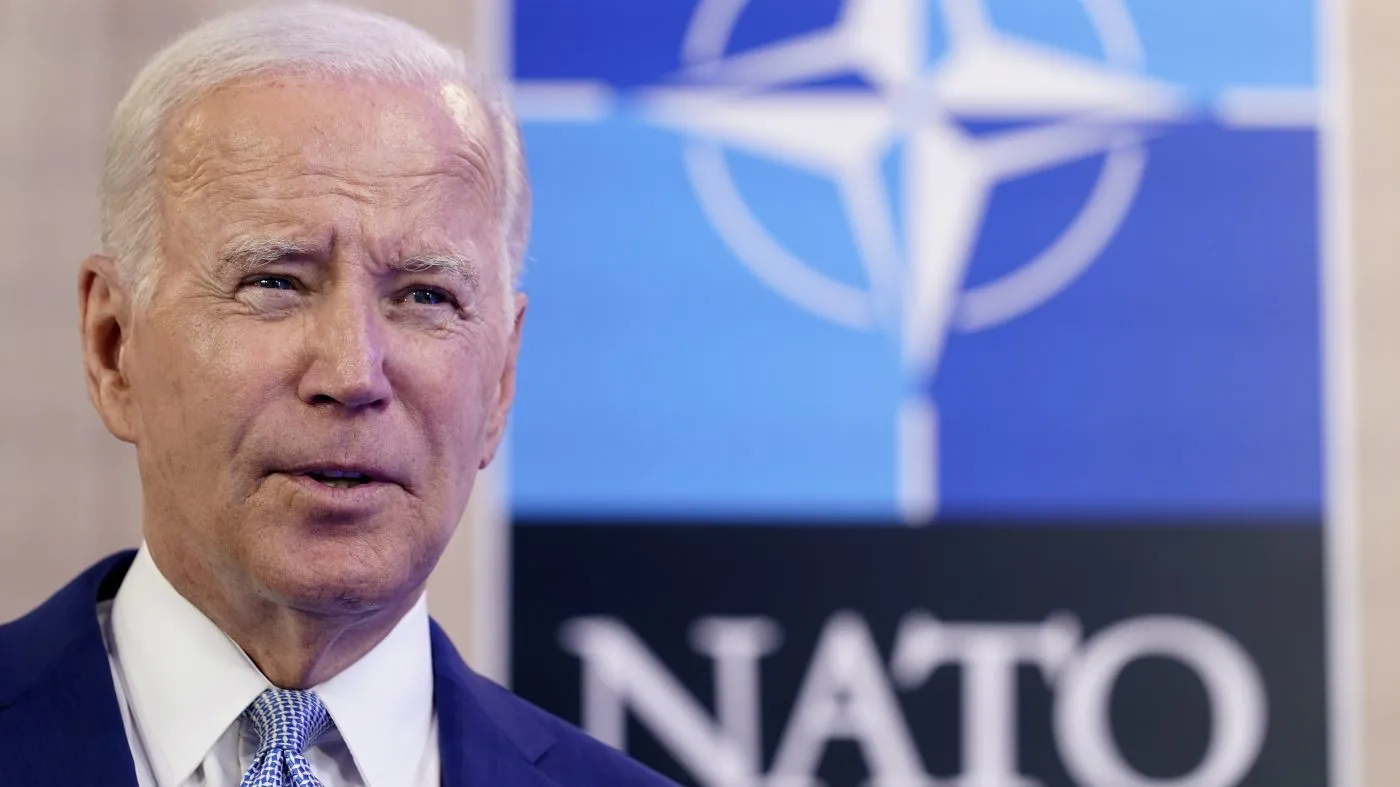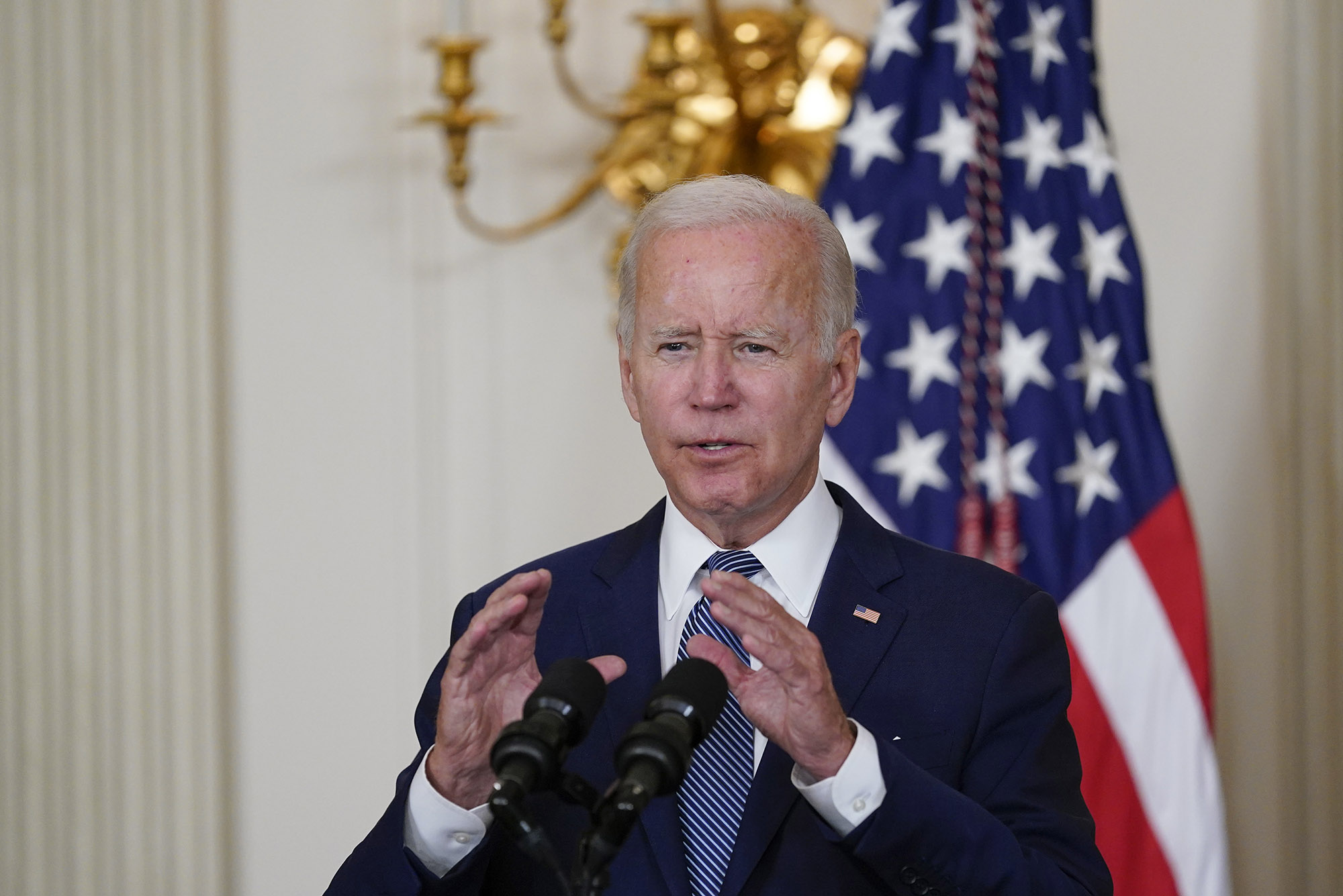President Biden strongly criticized Donald Trump’s recent remarks regarding the potential abandonment of NATO member states to Russian attacks if they fail to meet defense spending targets.
Biden characterized Trump’s comments as “appalling and dangerous,” taking issue with the former president’s suggestion that non-compliant nations should be left vulnerable to aggression.
During a rally in Conway, South Carolina, on Saturday, Trump conveyed his willingness to “encourage” Russia to act aggressively against NATO countries falling short of the longstanding two percent GDP defense spending target.

Joe Biden (Credits: The Hill)
He humorously, yet inaccurately likened the targets to dues owed to one of his golf clubs. Trump recounted a conversation with a NATO leader, stating that if a country failed to meet its financial obligations, he would not support invoking the mutual defense provisions of the transatlantic alliance.
Using direct quotes from Trump’s speech, Biden’s re-election campaign released a statement emphasizing the president’s commitment to standing “shoulder to shoulder” with NATO.
The statement highlighted the collaborative efforts to bolster the defensive alliance, framing it as a powerful force in the defense of democracy against Vladimir Putin’s authoritarian aggression.
Biden’s response underscores a clear divergence from Trump’s approach to NATO, emphasizing a commitment to collective defense and alliance solidarity.
The condemnation of Trump’s stance as “appalling and dangerous” reflects Biden’s dedication to upholding international partnerships and confronting authoritarian challenges.
In contrast to Trump’s cavalier approach, Biden’s statement positions the United States as a key player in the defense of democratic values against external threats. By emphasizing the growth and strength of NATO during his presidency, Biden seeks to present a narrative of unity and resilience in the face of adversarial forces.
The contrasting views on NATO’s significance and the responsibility of member states underscore the broader ideological differences between the two leaders.
Trump’s transactional approach, equating defense spending targets to club dues and suggesting abandonment for non-compliance, contrasts sharply with Biden’s emphasis on collective security, shared values, and standing united against authoritarian aggression.
As the political discourse unfolds, the clash of perspectives on NATO and international alliances becomes a focal point. Biden’s push for unity and commitment to democratic defense stands in contrast to Trump’s more transactional and conditional approach.
The evolving narrative will likely influence public perception and shape the discourse on the role of the United States in the global arena.























